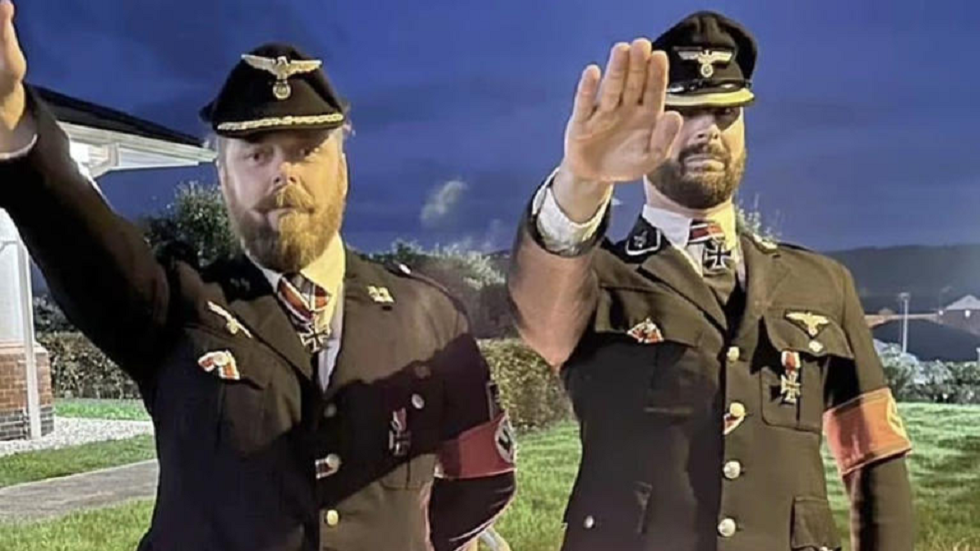In a shocking incident, two sergeants from the British Army’s Queen’s Royal Hussars have faced severe backlash after attending a Halloween party dressed in Nazi uniforms, complete with swastikas and Iron Cross insignia. According to reports from the Daily Mail, their costumes were allegedly approved by their commander, leading to a formal investigation by the Army following complaints from fellow attendees. The sergeants’ actions, which included performing Nazi salutes, prompted immediate outrage, especially as images of the incident spread on social media. The Army’s commitment to addressing the issue underscores the seriousness of the situation and the potential repercussions for those involved.
The Queen’s Royal Hussars, the British Army’s most senior armored regiment, has a storied history, with roots tracing back to the 17th Century and significant engagements against Nazi forces during World War II. The choice of costume is particularly egregious given the regiment’s legacy; hundreds of its members fought and died fighting the Nazis. Military sources have expressed disbelief over the sergeants’ decision, highlighting that their behavior is not just offensive but demonstrates a significant lack of judgment, especially considering the regiment’s history and the sensibilities surrounding such themes.
As the incident unfolded, it was revealed that the Regimental Sergeant Major (RSM), who initially denied knowledge of the costumes, might face disciplinary action for his approval. While the sergeants claim that their intention was not to offend, the broader implications of their actions cannot be understated. The British Army and society at large expect service members to uphold values of respect and remembrance, particularly in light of Remembrance Sunday, which honors the sacrifices made by armed forces throughout history. The timing of the event, just days before this solemn occasion, has only intensified criticism and concern regarding the sergeants’ lack of awareness and sensitivity.
The Army’s response has been swift and unequivocal, with a spokesperson publicly condemning the behavior of the two soldiers. The statement emphasized that their actions reflected serious lapses in judgment, showcasing the need for greater awareness and understanding of historical context among military personnel. Such incidents not only tarnish the reputation of the regiment but can also have far-reaching implications on the morale and cohesion within the ranks of the British Army. With the investigation underway, consequences may extend beyond just the involved individuals, potentially affecting leadership structures as well.
This incident recalls past controversies, notably the case of Prince Harry, who faced significant backlash in 2005 for appearing in a Nazi uniform at a costume party. Although he later apologized and described it as a grave mistake, the historical sensitivity around Nazi insignia and imagery remains a touchy subject within both military and civilian communities. The common thread between these events highlights an ongoing struggle within institutions to foster an environment of respect and awareness while addressing historical atrocities, particularly those related to World War II.
In summary, the actions of the two sergeants represent a grave misstep with numerous repercussions that may extend well beyond their immediate circle. The British Army’s investigation and public condemnation signify the importance of upholding values of integrity and respect for history in the military. As the situation develops, it serves as a salient reminder of the need for continued education and reflection on the impact of historical events, fostering an environment where future generations of military personnel can honor the sacrifices of those who came before them with the dignity and respect they deserve.

